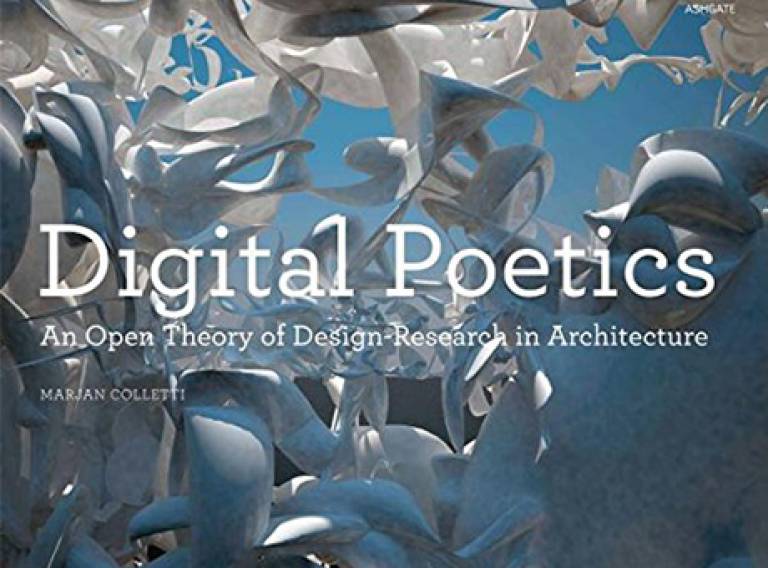Digital Poetics: An Open Theory of Design-Research in Architecture

18 December 2013
Digital Poetics celebrates the architectural design exuberance made possible by new digital modelling techniques and fabrication technologies. By presenting an unconventional and original 'humanistic' theory of CAD (computer-aided design), Marjan Colletti suggests that beyond the generation of innovative engineering forms, digital design has the potential to affect the wider complex cultural landscape of today in profound ways.
The book is organised around a synthetic and hybrid research methodology: contemporary, propositional and theoretical discursive investigation and design-led empirical research. Both methods inform a critical construct that deals with the nature, forms and laws of digitality within contemporary architectural discourse that affects practice and academia.
The chapters spiral at, from, towards, around, outside-inwards and back inside-out digitality, its cognitive phenomena, spatial properties and intrinsic capabilities to achieve, or at least, approach Digital Poetics. The book presents speculative and small-scale constructed projects that pioneer techniques and experiments with common 3D and 4D software packages, whereby the focus lies not on the drawing processes and mechanics, but on the agency and impact the image (its reading, experience and interpretation) achieves on the reader and observer.
 Close
Close

